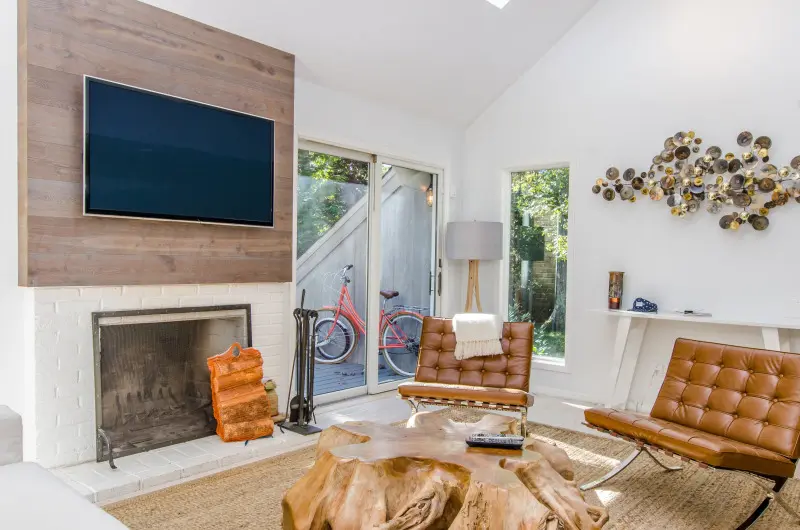
There are few words that scare home buyers more than the dreaded G word (Gazumping).
The Gazumping Situation
Picture this: you’ve made an offer on a property and had it accepted. Great news! The solicitor has finished the work and there are no outstanding issues.
The mortgage has come back approved with no objections from the bank and a date has been agreed between all parties to exchange contracts. But when this date comes around – you wake up to a surprise email from your solicitor:
“Unfortunately the buyer went with someone else”
Unfortunately gazumping does happen A LOT in the UK. And we’re going to explain below how it works and if you can avoid it.
Gazumping Definition
The understood definition of gazumping is “To make a higher offer for a property than someone whose offer has already been accepted by the seller and thus succeed in acquiring the property”. But in simple terms – someone outbid you.
How Does Gazumping Work?
Put simply, gazumping can happen at any point in time right up until the date that you and a seller agree on ‘exchange’. When exchange happens – money has to be put down and it makes it very hard for a party to pull out of the transaction. But before this date the buyer or seller can decide to go for another person or property.
Gazumping happens because another person has decided to offer a higher price on your dream home to the seller. Because the price is higher – the seller usually takes it. This causes the whole transaction to fall apart.

Is Gazumping illegal?
Unfortunately there is nothing wrong with gazumping and it is very common in the UK. It becomes more common when property prices are rising.
And we know in the UK that property prices have literally been on the increase every year (apart from major recessions) – so this makes gazumping very common.
Note: this post discusses gazumping in England only. In Scotland the rules are different and can limit the amount of gazumping.
What happens if I have already paid for costs?
Many victims of gazumping don’t find out until the property purchase is at an advanced stage. This means that costs will have been incurred for solicitors, mortgage brokers, surveyors and any other professionals.
The short answer is: “Tough”
There is no obligation for seller to reimburse you for your costs. However there are ways of protecting yourself financially (explained below).
Can the Agent Help Me With Gazumping?
If the agent is going to do anything in this – they will be helping the seller (aka. their client) get the best possible deal.
Agents are legally required to pass on all offers to the seller. So if a higher offer does come in, you can be sure the seller will be told.
Some agents continue to market properties despite an offer being accepted (something which is profoundly unprofessional). Unfortunately there is little that can be done if the agent wants to operate in this way.
But we do have some tips below to help you balance the scales in your favour.
What Should I Do To Protect Myself From Gazumping?
We’ve put together some top tips to help you avoid being a victim of gazumping:
1. Make A Competitive Offer
If you want to avoid being gazumped when trying to buy a house, the best thing you can do is make a competitive offer from the start. If you sense a home has a lot of interested buyers, sometimes it’s worth making your best and final offer at the start and avoid the negotiating.
If you really love the home, consider offering asking price or even slightly above if you can manage it.
Check the prices of homes sold in the area on the Rightmove price search (you just need a postcode or town name to get started).
Also think about offering a completion date that suits the seller – they may prefer a quicker sale.
2. Consider taking out Home Buyer Protection insurance
We won’t go into a lot of detail on the insurance options here and what they can cover (we’ve done a whole post on home buyer protection) – but cost is usually quite small and can bring someone peace of mind that there is a way to get your costs back.
It is important to read the find print on any insurance that you take out, as some situations may be excluded from cover.
3. Have your professionals ready
The last thing a seller wants is to accept an offer from someone who is not looking to move forward at pace in the process.
Before your offer is accepted:
- Get an agreement in principle from a lender/mortgage broker
- Have a look for your target solicitor to appoint when an offer is accepted
When your offer is accepted:
- Confirm the solicitor (usually requires signing different forms)
- Get the mortgage application sent off (either from the broker or direct if you are going direct)
If you’re looking to protect your costs in the buying process it might be worth you using a solicitor that charges most of their legal fees on completion. These can have their own disadvantages, but you should consider no completion no fee solicitors anyway.
4. Move Fast!

For some home buyers there’s a bit of a tendency to take it easy after the offer has been accepted – thinking the hard work is done.
Remember- if you don’t progress quick enough on the house sale the seller may get irritated and decide to later reject your offer and go with someone else who can work quicker.
When you get messages back from your solicitor – reply to them on time!
5. Be On Good Terms With The Estate Agent
The agent works for the seller – and doesn’t really have much of an interest in you as long as you continue to complete the transaction. So becoming friendly with them may not score you too many points.
But estate agents are only paid the large commission when the sale goes through – so they are motivated for it to happen.
If you are in large disagreements with the agent or sending continuous complaints on email to get the process started – they may not care much for you. They are the ‘gate keeper’ when it comes to stopping the advertising. It takes very little to get on with them – and it’s better you do this than face the consequences of arguing with them.
Keep your wits about how the estate agent behaves. It is not unheard of for an agent to try and pump up the price at the end stages of a sale and invent an offer at the last minute to rattle you into offering more.
If this does happen – remain calm and ask to see evidence of the offer in writing.
Even if this comes through – do not feel pressured into offering more then and there. You should always think carefully about putting more money down than you originally intended to. Buyers can sometimes find they get ‘caught up in the moment’ and later regret overpaying.
6. Make sure your offer is worded correctly
When you are making your offer it is best to do this by email. If you instead make a verbal offer – we always recommend following up with an email to make sure there is no confusion later on.
You should always include in your offer letter the following wording:
“As a condition for accepting my offer all advertising of the property is to stop and no more viewings are to be taken”
Sellers will usually happily agree to this – they rarely move forward with an offer they don’t like – and frankly it can be just as much trouble breaking off with the current buyer that is along the process and take the risk with a new buyer.
7. Get along with your sellers
Just as we discussed the benefits of getting along with the estate agent – the seller is ultimately going to make the decision on whether to go for another offer or not.
Sometimes if a seller has gotten to know the buyer and likes them – this can create some loyalty.
The typical example would be a seller who realises the buyer is a family who have gone through hardship, lost out on 3 other homes and share a distant family connection with them from a few generations earlier.
Can I offer less for the property later on?
In a nutshell – yes you can.
Neither you or the seller are tied into any commitment until ‘exchange’ for a regular property purchase
(Note: sometimes property developers do charge a reservation fee for securing your property which can sometimes be impossible to get back – so check this)
The process of a buyer offering a lower price for the property at a later date is known as gazundering.
Just like gazumping drives buyers crazy, gazundering will surely aggravate your seller.
It’s a high risk strategy, and only really works if you are either in
- A buyers market where house prices are falling; or
- The seller is really desperate to sell and doesn’t have time to put the property back on the market again

Pingback: Do I Need Home Buyer Protection Insurance? - Home Buying Tips
Pingback: Sold STC Meaning - Home Buying Tips
Pingback: What does no Onward chain mean? - Home Buying Tips